The key to promoting and advertising content on the Internet is the creation of the Internet “traffic”. The media outlets, in fighting for survival and profit on the online market, often use clickbait as a tool – sensationalist headlines, the content of which mostly does not correspond to the following text. The clickbait uses natural human curiosity and is created to gain the financial interest, i.e. increased readership. To put it simply, a clickbait offers more than it can give.
Headlines, such as: “You won’t believe it”, “You have to check this out”, “What happened will shock you” are the most common examples of “click baits”, that allegedly offer exclusive content to readers.
Importance of the headlines has become more significant than ever, and its significance was best described by David Ogilvy, who said that five times more people read only the headlines rather than the text itself. “Once you write a good headline, 80 per cent of your dollar has already been spent”, said Ogilvy, who is, according to Time Magazine, the most wanted wizard of the advertising industry.
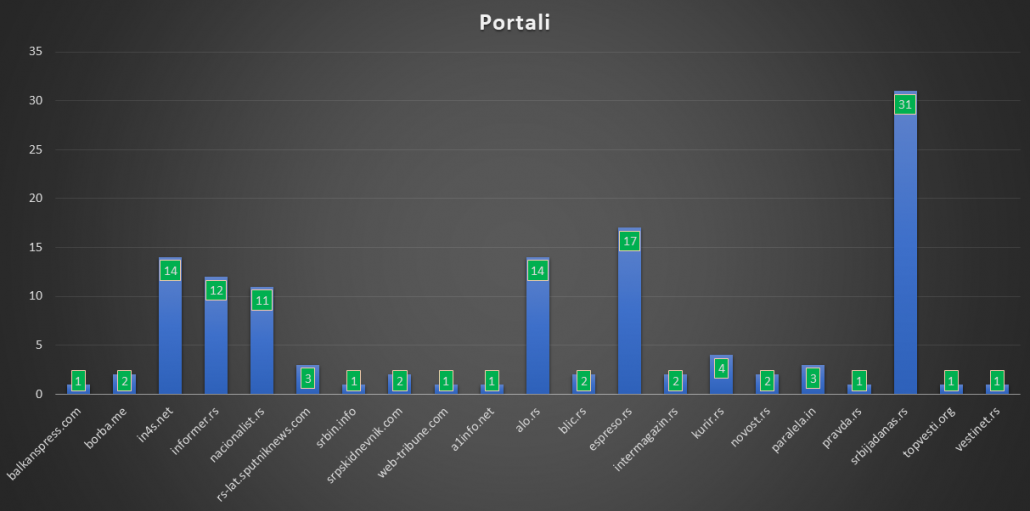
The clickbait phenomenon is well familiar in the regional media world – we identified and analyzed 126 clickbait headlines in the period from March 15th till May 25th. The portals registered on the territory of Serbia are the loudest ones in promoting such articles.
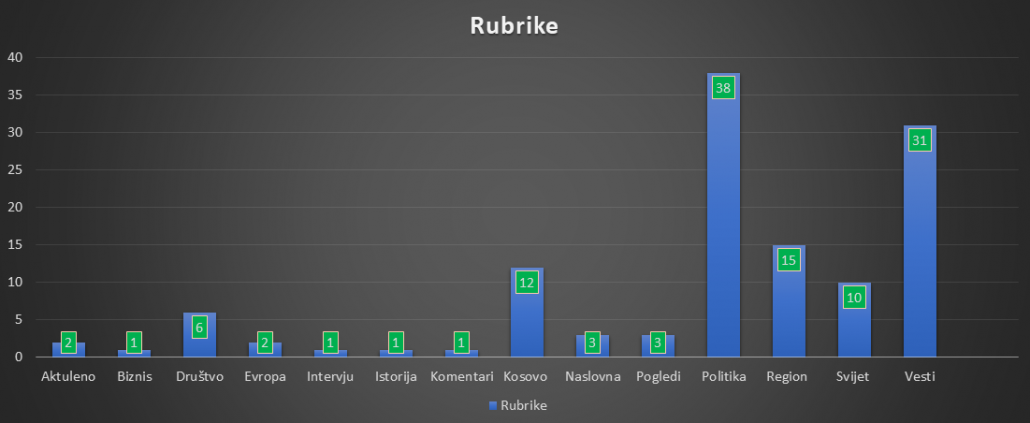
When it comes to the columns where such content has been published, most commonly those are politics (38), news (31), region (15), and Kosovo (12), which represent 76% of the analysed clickbait headlines.
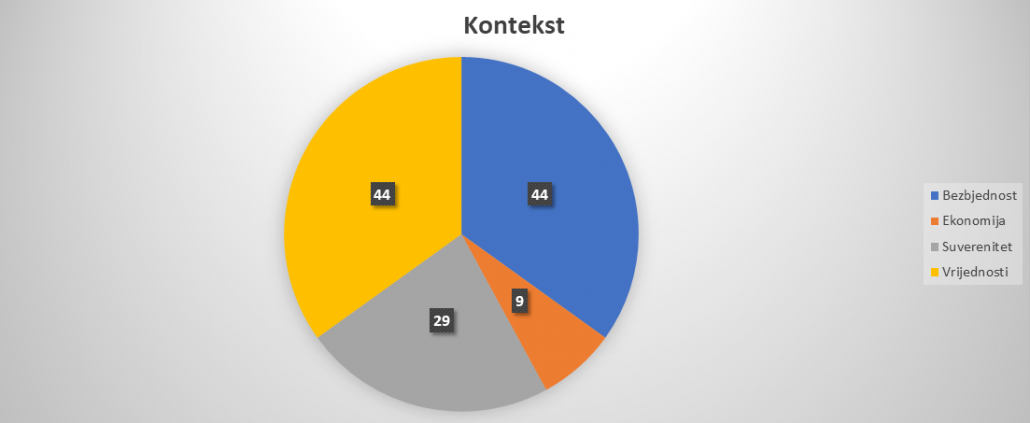
When it comes to the type of article, the most dominant are reports (70) and statements (42), which together account for 80% of the total analysed clickbait headlines.
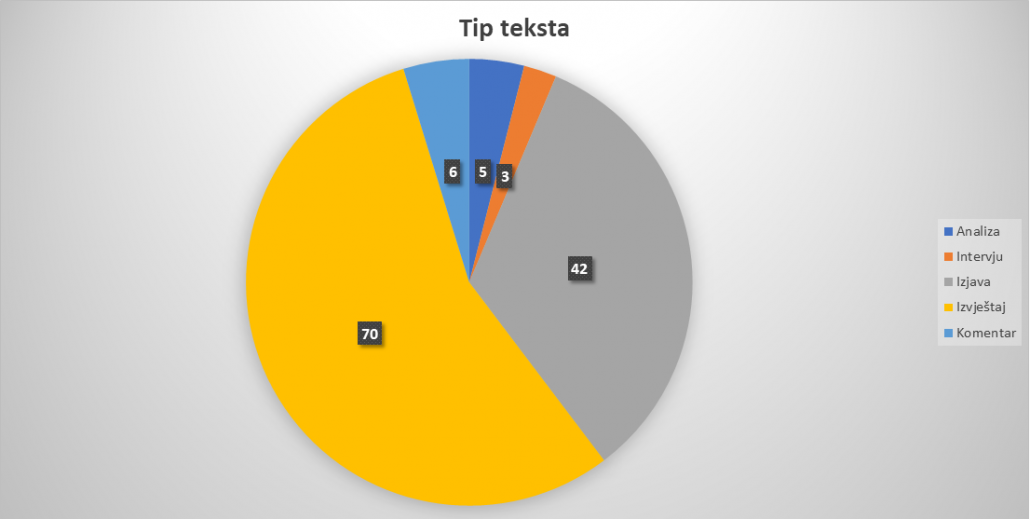
The analysed texts mostly concerned the aspects of security (44) and values (44), while the least attention was given to the economy (9).
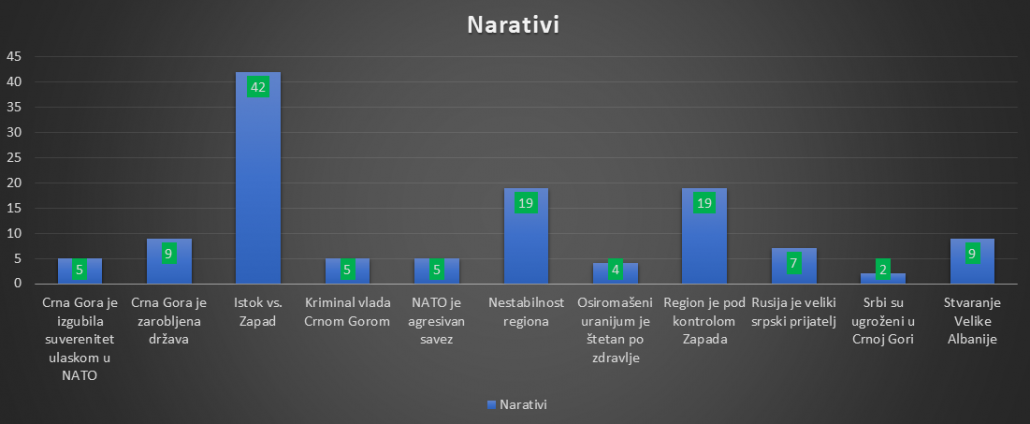
When it comes to key narratives, we identified 11, and those are: Montenegro has lost its sovereignty by joining NATO (5), Montenegro is a captured state (9), East vs. West (42), Montenegro is a crime state (5), NATO is an aggressive alliance (5), the Western Balkans is an unstable region (19), depleted uranium is harmful (4), the Western Balkans is under the control of the West (19), Russia is the biggest friend of Serbia (7), Serbs in Montenegro are endangered (2) and creating Greater Albania (9).
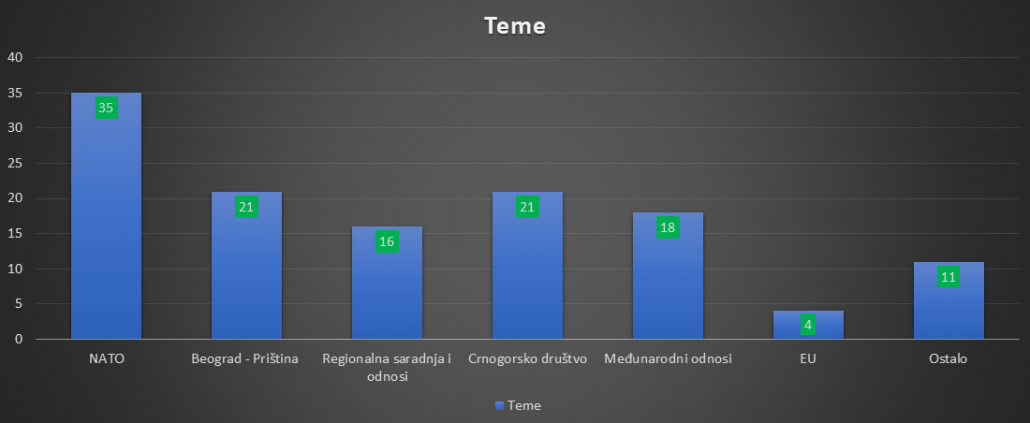
When it comes to the topics, we identified 6 key topics: NATO (35), Belgrade – Pristina dialogue (21), regional cooperation and relations (16), the Montenegrin society (21), international relations (18) and the EU (4).
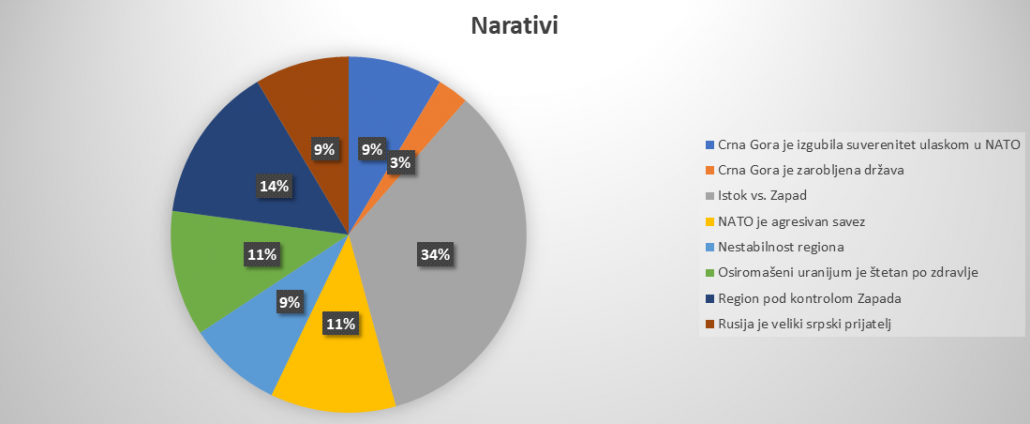
Within the most frequent topic – NATO – there are 8 narratives with the intent of spreading, and those are: Montenegro has lost its sovereignty by joining NATO (3), Montenegro is a captured state (1), East vs. West (12), NATO is an aggressive Alliance (4), the Western Balkans is an unstable region (3), depleted uranium is harmful (4), the Western Balkans is under the control of the West (5) and Russia is the biggest friend of Serbia (3).
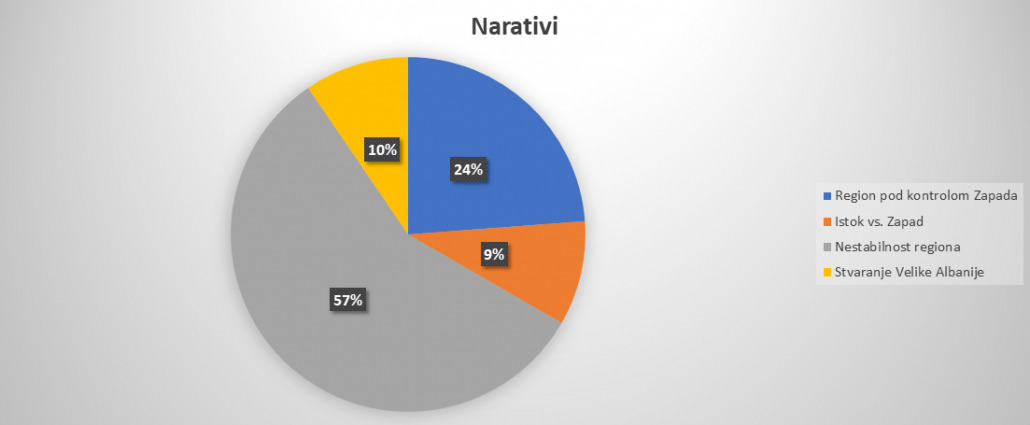
Within the topic Belgrade – Pristina dialogue there are 4 narratives with the intent of spreading, such as: the region is under the control of the West (5), East vs. West (2), the Western Balkans is an unstable region (12) and creating Greater Albania (2).
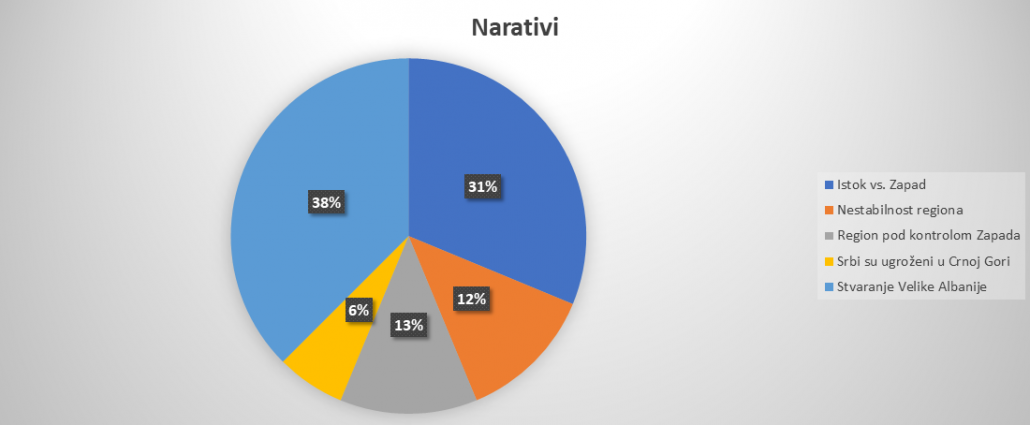
Within the topic regional cooperation and relations, there are five narratives with the intent of spreading: East vs. West (5), the Western Balkans is an unstable region (2), the Western Balkans is under the control of the West (2), Serbs in Montenegro are endangered (1) and creating Greater Albania (6).
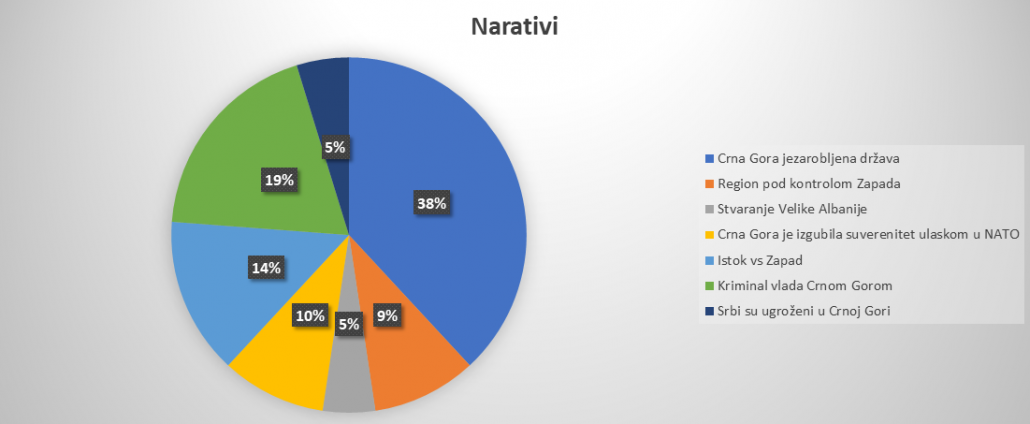
Within the topic Montenegrin society there are 7 narratives with the intent of spreading, and those are: Montenegro is a captured state (8), the Western Balkans is under the control of the West (2), creating Greater Albania (1), Montenegro has lost its sovereignty by joining NATO (2), East vs. West (3), Montenegro is a crime state (4) and Serbs in Montenegro are endangered (1).
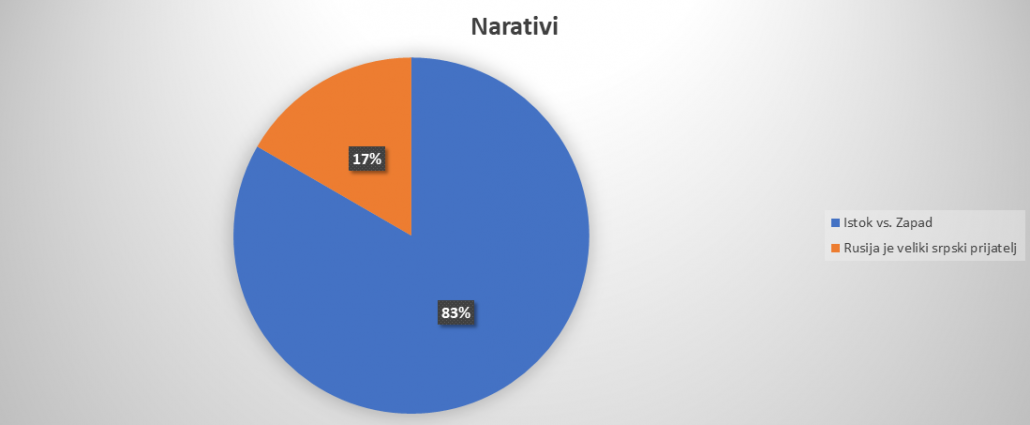
Within the topic of the international relations, there are 2 narratives with the intent of spreading, and those are: East vs. West (15) and Russia is the biggest friend of Serbia (3).
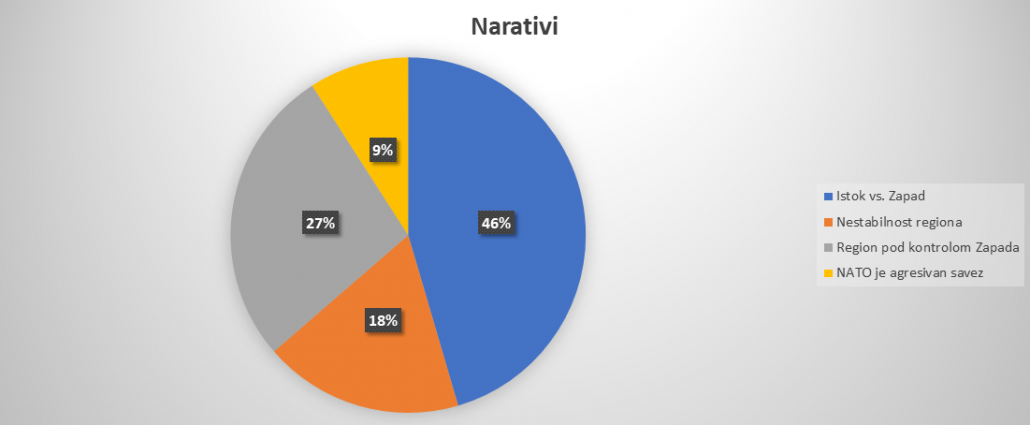
Within the topic other there are 4 narratives with the intent of spreading, and those are: East vs. West (5), the Western Balkans is an unstable region (2), the Western Balkans is under the control of the West (3) and NATO is an aggressive Alliance (1).
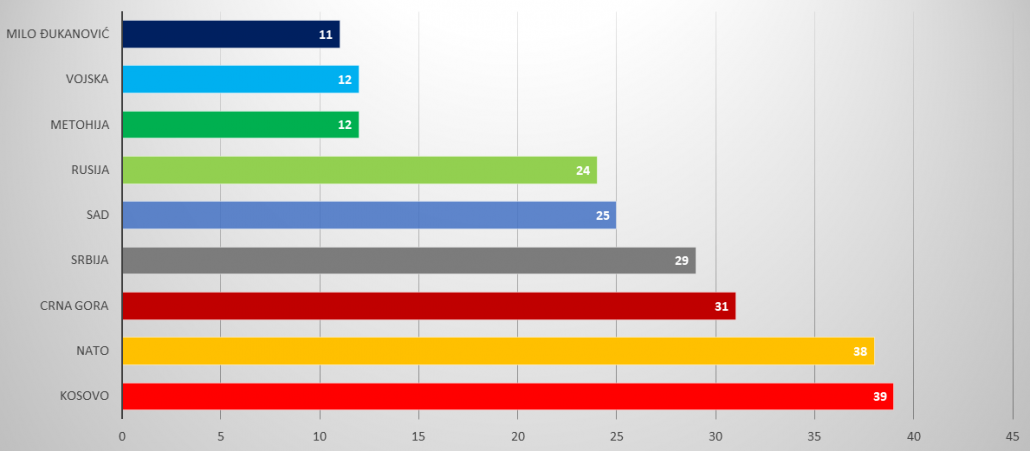
Conclusions:
- Within the period from March 15th till May 25th we identified and analysed 126 clickbait articles.
- The most dominant type of article was a report.
- The analysed texts concerned both security and values aspects.
- Within the articles that were the subject matter of the analysis, we identified 6 key topics and 11 narratives.
- When it comes to the topics, the most dominant ones were NATO and Belgrade – Pristina dialogue, while the most frequent narratives were East vs. West, the Western Balkans under the control of the West and the Western Balkans is an unstable region.
- The most frequent words were: Kosovo, NATO and Montenegro.

